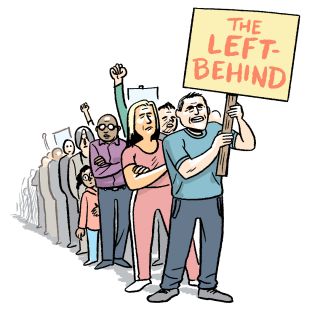Budget 2024: providing the least for those on lowest incomes

Budget 2024 follows the path of Budget 2023, with Government repeating last year’s mistakes. Rather than spending this year’s surplus to support those who most need it, for whom it would have the greatest impact, Government has chosen to channel money towards those better able to manage without it. A more appropriate increase in all core weekly welfare rates would have enabled households to buy essentials routinely and not as treats.
Social Welfare
The increase of €12 in core social welfare rates falls short of the €25 needed to begin to address income adequacy among the poorest families, especially in the context of reduced purchasing power. Government has yet again reneged on the commitment it made in the Programme for Government (2020) to protect core social welfare rates; it has failed to benchmark social welfare or adequately compensate for inflation. Income adequacy is not a temporary challenge, it is a problem that Ireland has failed to make progress on for a considerable period of time. While one-off measures are welcome, they are no solution to the challenge of poverty and income adequacy. Indeed, when the one - off measures are stripped out, households on fixed incomes have been left behind again. Enabling those on the lowest incomes to afford essentials and have a basic standard of living is not a luxury and neither is it unaffordable.
Billed as a budget to tackle child poverty, Budget 2024 failed to live up to expectations. Child poverty is a reality for one in every seven children in Ireland, a stark statistic which raises major questions for fairness and progress. By failing to adequately resource adequate adult welfare rates, child benefit, decent rates of pay and conditions for working parents, and adequate and available public services Government failed to deliver for low-income families.
Low paid lose out again
The Budget has provided least for the large cohort of lower income workers; those earning around €15 to €20 per hour (€30,000 to €40,000 per annum). Year after year this large group of workers hears of ‘gains’ from the Budget but experiences little if any of them; something that cannot persist both due to its distributive effects and the socio-political reality that we cannot keep ignoring these workers and families. Social Justice Ireland has continually highlighted the relevance of refundable tax credits as a means of making the taxation system fairer and helping this low income group. It is a regret that Budget 2024 did not make this change; it is overdue.
Budget 2024 – another regressive shift
Budget 2024 follows a similar path to that adopted last year, with a mixture of immediate measures, one-off payments due before the end of this year, and changes to income tax and welfare payments from January 2024. Given the challenges that so many households face in making ends meet, particularly those on the lowest incomes, much of that assistance is welcome and badly needed. However, the presentation by Government of the Budget as progressive is misleading; unfortunately, it represents another regressive shift, building on a similar set of outcomes following Budget 2023. This is because of the marked difference in the way that the Budget measures are being delivered to households with permanent changes in 2024 (tax and core benefits) favouring higher income working households. Temporary changes (one-off credits and payments) are more concentrated among on lower incomes. Once these temporary measures are discontinued (from April 2024 onwards) what is left are the permanent changes to income taxes and welfare. These Budget 2024 decisions have skewed resources in favour of higher income individuals and households.